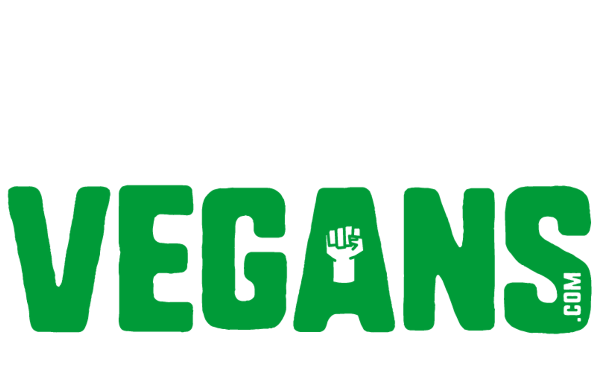Do you want to know how to stop binging, quit emotional stress eating episodes, and terminate bad consumption habits?
Bingeing and/or emotional stress eating episodes are a primary concern that almost anyone whose dieting for weight and fat loss may struggle with if the right strategy isn’t being utilized.
This article will shed some light on a more effective diet approach, and we’ll tell you to stop binging once and for all.
Bingeing vs Binge Eating disorder

First, let’s define the problem.
Binge eating disorder was officially recognized as a formal diagnosis back in 2013. Symptoms of people who have this include:
- Eating more food than normal.
- Feeling out of control while eating.
- Have a binge eating episode at least once a week for three months or longer.
Additionally, they must have at least three of the characteristics below:
- Eating really fast to the point of being overly full.
- Feelings of guilt, shame, or remorse about binge eating.
- Eating a lot even when not really hungry.
- Eating alone because you’re embarrassed by how much you eat.
If you’re experiencing the symptoms above, please consult with a professional for help and treatment. This article is intended to help those who struggle with bingeing, and not the diagnosed disorder as that is a psychological impairment and out of the scope of practice of this article and of our practice.
Bingeing, on the other hand, can be defined as “indulging in an activity, especially eating, drinking, or taking drugs, to excess.” Often you hear people say things like “I binged season 5 of The Office last night” indicating a huge splurge of time and or body composition sacrifice.
While bingeing can occasionally be fun, it is mostly counterproductive from a dietary perspective. If you find yourself consistently bingeing on Fast Food, certain restaurants, or ice cream; then this article was made for you!
Bingeing is usually caused by…
Reason #1: You’re not eating sufficient calories

Most people start a diet with the full intent of losing as much weight as they can, in a brief period of time, so the start crazy crash diets with lots of restrictions. This approach to weight loss is flawed and will set you up for failure, especially if you have over 30 pounds to lose.
If you go two weeks on a steady and rapid decline of weight, then your body starts to crave nutrients and hormones will signal that it is time to eat! As you go deeper into a diet, your calories get lower and your hunger levels rapidly increase and eventually you lose control over your appetite, decision making goes through the roof, and then you find yourself on a bingeing episode.
To avoid this, it’s necessary to eat as MANY calories as you can while still reaching a certain weight loss target. For example, if you can lose weight eating 2500 calories, then there’s no reason for you to eat 1800 calories.
What happens to most people is that they adopt a very drastic diet that becomes unsustainable after a short period of time. They may adhere to the diet for a few days, but as time goes on they start to feel absolutely famished!
And because of the society we live in, tasty food is accessible at any given time. Not only is it accessible, but it is practically thrown in your face from marketing through ads! You can have all the food you want with just one dial on your phone!
Now, will it be easier to avoid these foods if you have consistently consumed 1200 calories? Or if you have consistently consumed 2000? Of course!! The higher calorie value will ALWAYS be easier to adhere to!
If you’re stuck in a bingeing cycle, raise your calories back to maintenance and stay at maintenance calories for at least four to six weeks. Get used to eating at maintenance. Then, you’re going to feel very motivated to start a productive fat-loss phase.
And when you start your fat loss phase, make sure you’re eating as many calories as you can, while you still hit your weight and fat loss goals.
If you want to know how to calculate your maintenance calories, you can use our calorie calculator here.
That’s step number one and the first reason why you might be stuck in this unhealthy cycle.
Reason #2 Your meal planning is off
What do I mean by this?
Most people don’t plan what they’re going to eat and instead use snacks to sustain themselves throughout the day. So what they do consume is usually not gratifying, and consists of high calorie, low volume, low satiety meals and hunger builds up over time (snacking all day).
Then, they get home after work and they’re famished. Hunger levels are very high because they haven’t had a proper meal since the moment they woke up. Decision making goes out the window and the individual suffers from a bingeing episode feeling defeated and depressed.
When you’re starving, it’s really easy to make bad decisions. The higher your hunger levels, the higher the chances are of you making a bad decision when it comes to food and the higher the chances are of you going for a bingeing or emotional eating episode.
In addition to consuming poorly planned snacks throughout the day, most of these snacks have little to no protein! Protein is proven to be the macronutrient with the highest satiety effect, and thus should be used in our favor when constructing a well thought out diet.
To avoid the this from happening, plan 4-5 meals throughout the day that are really high in protein and fiber. This will keep you full, and your mind won’t be on food all the time! So steps one and two work in conjunction with another in order to offer you the most success. Plan your calories, and plan your meals! If these two priorities are taken care of, then you are well on your way to a successful fat loss phase.
Reason #3 You’ve been dieting for too long
Does this scenario sound familiar to you?
You started a diet with the intent to lose all of your weight at once and you won’t stop until you reach your goals! While this thought process is commendable, it rarely works in the long run.
Being in a calorie deficit for an extended period of time is very taxing for your Central Nervous System. In addition to inducing a ton of systemic fatigue, it is also very stressing on your psychological and social life.
As time moves forward, the difficulty increases more and more and the first glance of weight gain will likely trigger a roller coaster effect that will result in your gaining back all of the unwanted weight.
This is the reason that every fat loss diet should have a timeline before entering a brief, well planned maintenance phase. An appropriate way to approach this is to say “Ok, I’m going to lose 1% of my body weight every week for ten weeks” well that makes perfect sense because you set a timeline and a goal in that period! So for ten weeks you will be ultra strict, not cheat much, set your calories, plan your meals etc.
Following this ten weeks put yourself through a 4-10 week maintenance period where you are neither gaining nor losing weight. During this timeframe you can be more flexible with your macronutrients which allows for a significantly more fun timeframe. Not only is this timeframe more “fun” for you, but your metabolism will recover from a very taxing period and you will feel as good as new in a few weeks and ready to hit another fat loss phase!
Just to give you an example, last year, I did a diet that was sixteen weeks long. It was very long, and after that diet, I was burnt out. So, I had to take a two-month maintenance phase. I literally did nothing but maintained my body weight.
And in January, I started my other fat-loss phase for a bodybuilding competition. Taking a 2 month break from dieting from fat loss allowed me to start another diet with all the motivation and willpower. Everyone needs breaks from dieting – EVERYONE!
So if you’ve got a lot of weight to lose (30+ lbs), you have to get into the mindset that you will not lose it all at once. It might take a little bit longer, but remember you are not here to lose a bunch of weight and then gain it back- that’s just very devastating physically and psychologically. Your goal is to lose weight and keep it off FOREVER.
With this method, you want to drop between 5-10% total body weight for each fat loss phase, and then you take a break for maintenance. After you finished that maintenance phase, you are going to be feeling better, motivated, and excited to start another fat-loss phase.
Also, the chances of you bingeing and getting into another unhealthy cycle decrease because you’re not letting yourself get to that point where you’re famished and tired of dieting.

Tips to avoid binge eating
1. Eat plenty of fruits and vegetables – aside from helping keep you full longer due to their fiber content, some research shows that eating fiber could cut cravings, reduce appetite, and hunger.
Try incorporating more fruits and veggies in each meal. A green smoothie, for example, is excellent for breakfast and snacks.
And speaking of keeping you full longer…
2. Eat plenty of protein – protein sources are rich in calories and helps keep you feeling fuller, longer.
Foods such as nuts, seeds, and legumes, are excellent sources of protein for a vegan diet. Vegan protein powders and chia seeds are perfect additions to a green smoothie as well.
3. Plan your meals – Taking one or two hours each week to plan and prepare your food helps ensures you have healthy foods available to eat when you get hungry. Also, having food ready to eat helps you stick to an eating pattern.
Eating regularly helps stabilize your blood sugar instead of going through a peak and valley when you starve and go on a binge eating spree to satisfy your hunger.
4. Stay hydrated – Keeping yourself hydrated is a good way to curb your appetite and prevent you from over eating.
Drinking water has been linked to a decrease in hunger and cravings. Listen to your body to ensure that you’re drinking enough water daily.
5. Use maintenance phases for success – diet hard when you’re dieting, and use maintenance phases to eat your favorite foods.
There’s a big chance you will over eat if you think you will cut out your favorite treats forever, it’s unrealistic. Introducing maintenance phases so you can indulge in your favorite desserts and foods is necessary for long term success.
Binge eating during fat loss phases, on the other hand, makes you consume more calories than you need has a negative effect on weight loss.
6. Get enough sleep – Not getting enough sleep might cause you to feel sluggish and weak and can cause you to turn to food as a way to boost your energy.
Lack of sleep also affects the level of ghrelin hormones (the hunger hormone) and leptin (the hormone responsible for making you feel full). Get enough sleep and you help keep these hormones in check.
7. Address the root of emotional eating – Counselors can and other medications can help uncover and treat underlying causes of emotional eating.
Binge eating is hard enough and if you feel like you can’t do it on your own, don’t be afraid to ask for help.
You don’t have to feel hungry all the time
Now that you know how to stop binge eating, it’s up to you to calculate your caloric requirements and plan how you’re going to meet them (or we can do it for you).
You don’t have to struggle with restricting your food intake only to make up for it later on in the day or the week. You don’t have to diet longer than you need to and best of all, you don’t have to deprive yourself of all your favorite foods.
Follow the tips I gave you on this post and you’ll be on your way to establishing better eating habits and losing weight down the road.
_________________________________________________________________________
We’ve helped thousands of vegans shred fat, build muscle, and get the body they’ve always wanted.
How? With our 1:1 coaching program – The Jacked Vegans Academy. In the program, we provide nutrition, fitness, mindset, and accountability. We literally baby step our clients to the their goal.
If that sounds like something you could benefit from to finally get in shape and become a healthier person, apply to become a Jacked Vegan !





